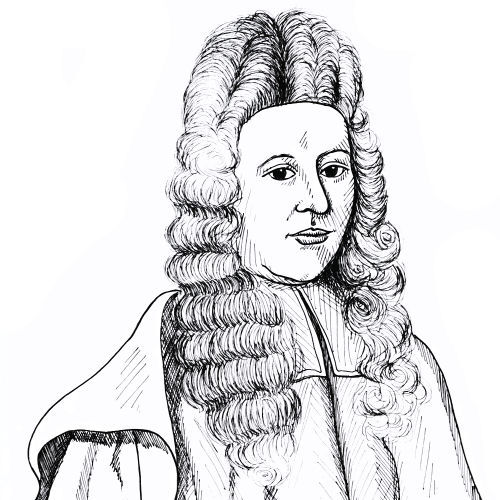Liberty Matters
What Counts as Taxation?
 Let me see if I can clarify my thinking about the relation between standing armies and taxation to David’s satisfaction.
Let me see if I can clarify my thinking about the relation between standing armies and taxation to David’s satisfaction.I think that part of the problem arises from the fact that David is working with a very comprehensive, and also I think unhelpfully modern, definition of taxation. When David asks “how else could an early modern army be paid except out of taxation?,” it seems that he is lumping together all the various revenues that flowed from the population and its activities to government (to use a term that can stretch to include the Crown and the two houses of Parliament) and calling it “taxation.” However, to agglomerate all government income in this way is to obscure some aspects of what we are discussing, and also to render meaningless what Harrington says about the impossibility of maintaining a standing army out of taxation. Clearly, Harrington was not working with David’s all-embracing definition of taxation.
A good place to begin is to recall that in the 17th century the army and navy were associated exclusively with the Crown. One of the first pieces of legislation passed by the Restoration Parliament in 1661 was “An Act declaring the sole right of the militia to be in the King,” the preamble of which begins: “Forasmuch as within all his Majesty’s realms and dominions the sole supreme government, command and disposition of the militia and of all forces by sea and land and of all forts and places of strength is and by the laws of England ever was the undoubted right of his Majesty and his royal predecessors, Kings and Queens of England, and that both or either of the Houses of Parliament cannot nor ought to pretend to the same....” One of the most important items of national spring cleaning to be tackled in 1660 was to get rid of that most egregious and un-English of the various monsters spawned by the Civil Wars, a parliamentary army.
The Crown had numerous revenues of its own which it received without any grant from the House of Commons (much though that House resented some of these sources of income): income from Crown lands, fines, assets sequestrated from traitors or otherwise foregone, the feudal incidents of wardship and marriage, monopolies, purveyance, impositions, ship money (certainly not a tax, but rather a payment in lieu), proceeds of disafforestation, etc. Nevertheless, the Crown’s revenues were usually insufficient to pay for the defense of the realm, and so additional supplies would as required be voted by the House of Commons to allow an army to be raised and the navy to be kept in repair. (James II however had managed to maintain his very large standing army out of the revenues of the Crown, and this was one of the aspects of his rule that had most alarmed his subjects.)
Questions of peace and war, together with foreign policy and relations with other nations, were also, at least formally, matters for the Crown alone. However, because their pursuit normally required a grant of supply, the House of Commons enjoyed an indirect influence over those areas of national life. The Commons could constrain supply, and even withhold it altogether, if it did not like the purpose for which the money was being raised. What the Commons did not possess, however, was any formal power to hypothecate the supplies they granted. Hence that recurrent feature of the reigns of the later Stuarts: suspicion in the Commons that funds granted for popular purpose X have instead been applied to unpopular purpose Y.
The financial innovations which followed 1688 upset this system. Suddenly the political consequences of withholding or constraining supply were both enlarged and relocated. Enlarged, because supplies granted by the Commons were no longer being applied to future items of expenditure, but rather were being used to service the debt on past items of expenditure. As a result, to withhold supply was no longer to apply pressure to the Crown. It was to undermine the creditworthiness of the government as a whole and hence to jeopardize national life more comprehensively. Relocated, because now the risks of withholding supply did not fall on the Crown alone, but instead were shared more widely.
It was because parliamentary supply could no longer be withheld, or even effectively constrained, that for the first time in the later 1690s a standing army could be maintained out of taxation, properly so-called.
Copyright and Fair Use Statement
“Liberty Matters” is the copyright of Liberty Fund, Inc. This material is put on line to further the educational goals of Liberty Fund, Inc. These essays and responses may be quoted and otherwise used under “fair use” provisions for educational and academic purposes. To reprint these essays in course booklets requires the prior permission of Liberty Fund, Inc. Please contact oll@libertyfund.org if you have any questions.